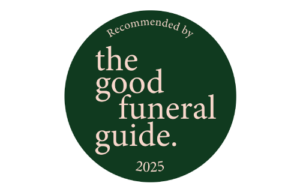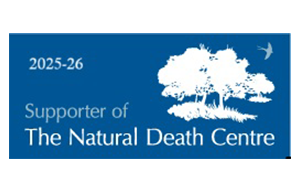When families visit our funeral home to make arrangements for their loved ones, one topic that often raises questions - and sometimes eyebrows - is embalming. The practice of embalming, despite being a routine aspect of funeral care, is surrounded by myths and misconceptions that can make it an uncomfortable discussion for some people. As a funeral director in the UK, we believe it’s important to address these misunderstandings and provide clear, honest information to help our families make informed decisions.
Here are some of the most common myths about embalming, along with the facts:
Myth 1: Embalming is legally required in the UK
One of the most pervasive myths is that embalming is a legal requirement. In truth, embalming is not mandatory in the UK. It’s entirely optional and is usually offered as a service to help preserve the body for a short period, particularly if there will be an open casket viewing or if the funeral is delayed. However, if the body is to be transported internationally (repatriation), embalming may be required depending on the destination country’s regulations. For families who choose not to embalm, be assured that there are other respectful ways to care for your loved one.
Myth 2: Embalming stops decomposition permanently
Embalming is not a way to stop the natural process of decomposition permanently. Instead, it temporarily slows down the process. The embalming solution, which contains chemicals such as formaldehyde, sanitises and preserves the body for a limited time. This can be useful for families who want to hold a viewing or have loved ones who are travelling to attend the funeral. However, over time, the body will still return to its natural state, even when embalmed.
Myth 3: Embalming is required for a natural look
While embalming can help restore a natural appearance, it is not the only option for ensuring a dignified presentation of the deceased. Gentle preparation and cosmetic care can often achieve a peaceful and respectful appearance without the need for embalming. If you prefer a natural burial or want to avoid chemical processes, speak to a member of the Levertons team about your wishes. There are many ways to honour your loved one’s appearance without embalming.
Myth 4: Embalming is the same as the preservation used in Ancient Egypt
Many people associate embalming with the elaborate mummification practices of ancient Egyptians. Modern embalming, however, is far less complex and is performed for three reasons: preservation, sanitisation and presentation. It is performed to be a benefit to the Living, not as would initially be thought of to the Deceased. It involves the injection of an individually bespoke mixture of chemicals, including formaldehyde for the deceased, into the main arteries; the blood and various other fluids are then removed. The practice delays decomposition and, depending on the bespoke mixture injected, can retard decomposition for many months if not longer. While the practice can delay decomposition, it is not comparable to the centuries-long preservation achieved by mummification.
Myth 5: Embalming is always safe for the environment
The embalming process uses chemicals that can pose environmental risks if they enter the soil or water supply, particularly in areas without strict environmental safeguards. For families interested in eco-friendly options, natural or green burials are a fantastic alternative. These avoid embalming and often use biodegradable materials for coffins and shrouds. As funeral professionals, we’re happy to support families in exploring sustainable practices that align with their values.
Myth 6: Refrigeration stops any further degradation of a body following death
This, unfortunately, is not true, although it does slow down the process. Families should not feel rushed into making a decision regarding embalming when they first meet with their funeral director. However, it is important to get their loved one into the care of their funeral director as soon as possible, so that we can then assess and care for their loved one in a controlled refrigerated environment. The successful outcome of embalming is increased by getting their loved one ideally embalmed within the first 3 weeks following death; each week following that reduces the likelihood of a successful outcome, but it is possible to embalm a body many weeks following death.
Conclusion: A balanced decision
Ultimately, embalming is a deeply personal choice, and there is no right or wrong answer to whether to use it or not. Some families find great comfort in having their loved one embalmed, especially if it allows for a peaceful viewing or helps coordinate the timing of the funeral. Others prefer to forgo embalming for environmental or personal reasons. As funeral directors, our role is not to push one option over another but to support you with the information you need to make a choice that feels meaningful and respectful.
We would like to reassure all our families that embalming here at Levertons is performed in a totally respectful manner by our qualified in-house Embalmer, and we would be happy to address any concerns you may have.
If you are looking to find out more about how we approach the embalming process at Levertons or want to discuss any other aspects of a funeral plan, then please get in touch. Our family have been funeral directors since 1789 for 8 generations and seek to provide comfort, support and professional guidance to help people navigate organising a funeral. You can contact us at any of our 5 branches or by emailing info@levertons.co.uk.







